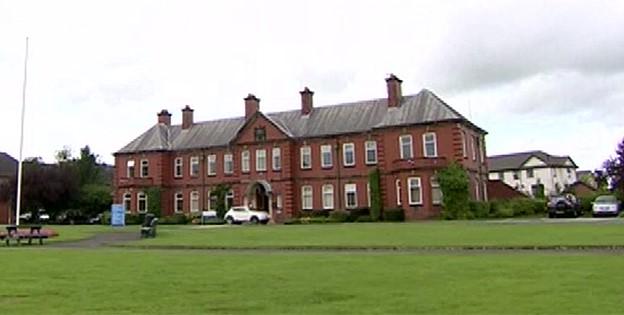Calderstones NHS Trust must take 'urgent action', inspectors say
- Published

Calderstones NHS Foundation Trust was inspected by the CQC in July
A Lancashire NHS Trust which deals with the mentally ill has been criticised by a healthcare watchdog, for restraining patients "on a number of occasions", by holding them face down on the floor.
Unsafe methods were being used at Calderstones NHS Foundation Trust and there were "serious deficiencies" in the care given to patients.
The Care Quality Commission (CQC) also found poor hygiene on wards and said "urgent action" was needed.
The trust has "taken steps to improve".
The Ribble Valley-based trust exclusively provides care for people with learning disabilities and all patients are cared for in a hospital ward, with almost all detained under the Mental Health Act.

Inspection findings
Some rooms and wards were dirty and unsafe
Lack of infection control audits, no hand washing facilities where medicines were dispensed
Patients were restrained being held face down on the floor, which is the least safe method of restraint
That restraint technique is contrary to recently introduced national guidance
The trust must ensure there is a sufficient number of suitably qualified staff

Chief Executive Mark Hindle said: "There are challenges in supporting people with extremes of behaviour, where because of their learning disabilities, many have committed crimes that put themselves and other people in danger.
"We are committed to improving quality in this organisation for our service users."
An area of good practice was a patient-led complaints monitoring system.
More than 40 per cent of the patients at Calderstones have been there for more than five years, the CQC said.
Dr Paul Lelliott, the CQC's deputy chief inspector of hospitals, said: "We were surprised at the number of occasions when staff had resorted to physical restraint."
He urged the trust to "work tirelessly to find alternative ways of helping the people they care for to gain control over their more risky behaviours".
"The staff at Calderstones must also ensure that when restraint is used it is by the safest means and that there is proper medical back-up to minimise the possibility of harm to the patient," Dr Lelliott said.